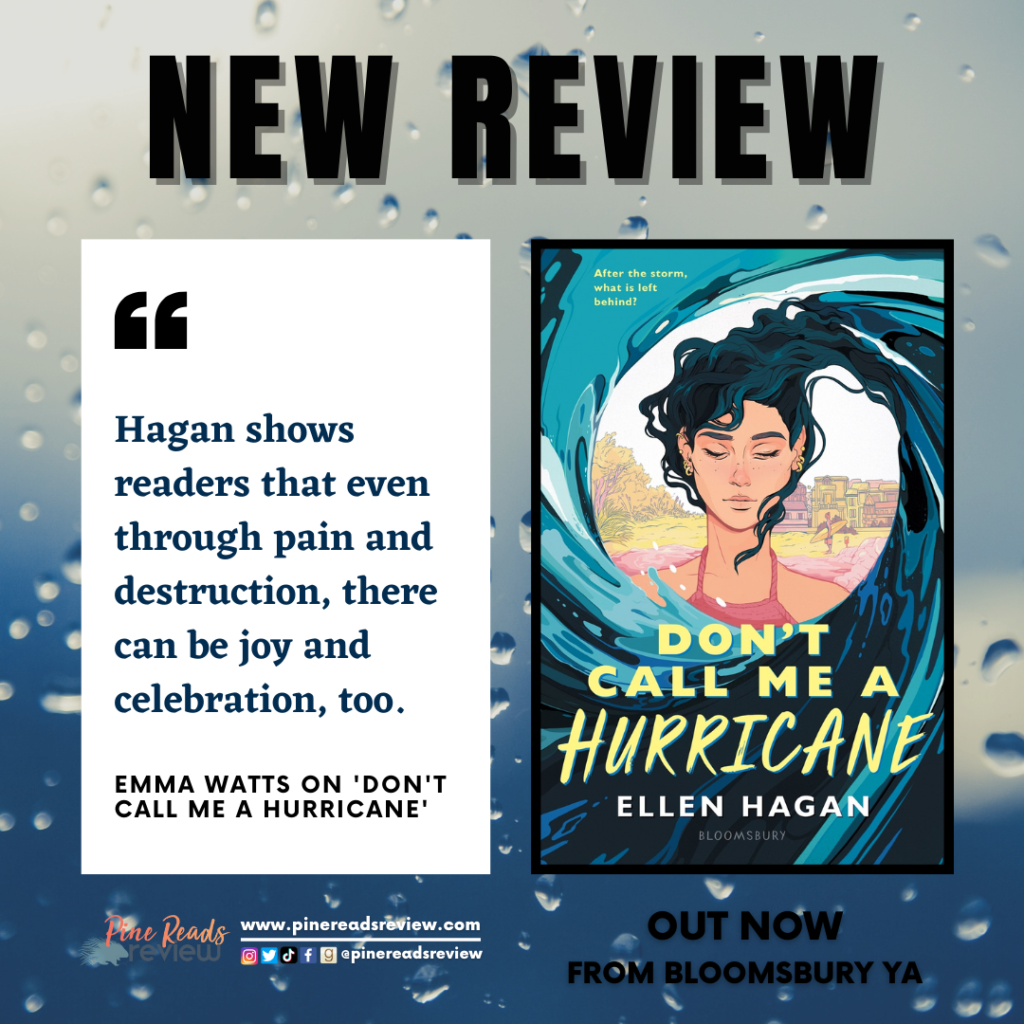
Don’t Call Me a Hurricane by Ellen Hagan
Out now from Bloomsbury YA; 400 pages
Content Warnings: PTSD, Natural disaster.
About the author: “Ellen Hagan is a writer, performer, and educator. Her books include:
Crowned, Hemisphere, Watch Us Rise, a YA collaboration with Renée Watson, Blooming
Fiascoes, Reckless, Glorious, Girl and Don’t Call Me a Hurricane (YA novel in verse forthcoming from Bloomsbury, 2022.) Ellen’s poems and essays can be found on ESPNW, Creative Nonfiction, Underwired Magazine, She Walks in Beauty (edited by Caroline Kennedy), Huizache, Small Batch, and Southern Sin” (bio taken from author’s website).
Find Ellen Hagan on the following platforms:
Don’t Call Me a Hurricane is a novel in verse that follows 17-year-old Eliza Marino during the
summer before her senior year. Eliza lives on the Jersey shore, and while she loves it there, she
hates the way that it’s being overrun by tourists and developers — especially after a devastating
hurricane that washed away her house, her mom’s business, and most of the city she grew up in.
Throughout the novel, readers follow Eliza as she grapples with life after the hurricane, when all
she can think about is the destruction that it caused. With the help of her friends, family, and a
new boy on the island, Eliza begins to heal by fighting to save her island from the environmental
impacts of gentrification.
There are many things to love about Don’t Call Me a Hurricane. Eliza struggles with PTSD and
anxiety in the aftermath of the hurricane, and Ellen Hagan discusses these mental health issues in
a very honest and open way. Hagan doesn’t shy away from describing Eliza’s panic attacks and
her fear about climate change in great detail. The feeling of dread about the possibility of future
hurricanes is also emphasized — it’s something that readers see Eliza worry about regularly before bed and during her therapy sessions. It never goes away. This repetition allows readers to
get into Eliza’s head and truly understand her anxiety.
Don’t Call Me a Hurricane is a complex and riveting story. Hagan tackles a lot of topics that can
be difficult to discuss, such as mental health, therapy, climate change, gentrification, and
overdevelopment’s effect on the environment. However, the novel is also full of hope. There’s
romance, strong friendships, tight-knit families, and a heartwarming sense of community. Hagan
shows that through pain and destruction, there can be joy and celebration, too.
PRR Writer & Editor, Emma Watts